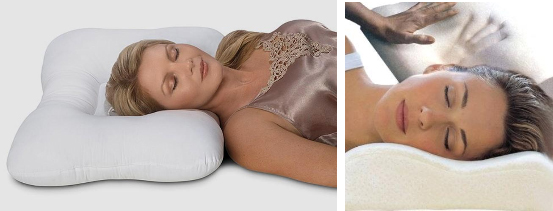Mattress and Pillows
Is Your Mattress Or Pillow Causing You Spine Pain?
We spend nearly one third of our lifetime in bed. It’s natural to presume all this time on mattresses and pillows has an effect on the musculoskeletal system, pain levels while awake, and ultimately our ability to function.
The evidence on this topic is sparse. Furthermore the evidence that exists is diluted with sensational articles with headlines like
- “My Mattress was Putting my Health in Jeopardy!”
- “8 Ways Your Mattress is Literally Ruining Your Health”
So What Does the Evidence Show?
New mattresses improve sleep and therefore cognitive function
First of all, mattress selection affects sleep quality, which, among other things, affects cognitive function. An article published in Nature Neuroscience in 2013 showed that interrupted sleep in the elderly contributed to age-related cognitive decline. This finding underscores the importance of a good night’s sleep.
Is sleeping better away from home?
- If that’s the case, and your mattress is several years old, you should consider getting a new one. In fact, there is evidence that a new mattress in and of itself, improves your sleep!
- A study out of the Oklahoma State University School of Applied Health and Educational Psychology demonstrated that new mattresses increased sleep quality and reduced back pain (Journal of Chiropractic Medicine. 2009)
- One point of contention is the debate over firmness.
- There is no standardization of terms like “soft,” “medium-firm,” and “firm.”
- However, there is a general consensus among experts that a more firm mattress is better for back pain, while softer mattresses are advisable for tender points.
This conflict and the lack of standard measures of firmness means you should be “test-driving” mattresses before making a purchase.
Pillows
- Head position and pillow use is controversial as well, with little evidence to guide recommendations.
- There is expert consensus that the neck should be in a neutral position, meaning not very flexed or extended.
- This means we should limit the use of pillows to no more than two flat pillows.
- However, if you have been diagnosed with asthma, acid reflux, heart failure, or chronic lung disease, you may need more pillows to sleep comfortably and should discuss this with your physician.
- If you have an old mattress and you sleep better outside the home, consider getting a new mattress
- A new mattress in and of itself has been shown in one study to improve sleep quality and improve back pain.
- Choosing a new mattress should be a deliberate process, including “test-driving” multiple mattresses.
Acknowledgments:
Behnum Habibi, M.D.
Physical Medicine and Rehabilitation Resident
New York Presbyterian Hospital



